African innovation for inclusive healthcare: An IFPMA and H3D Foundation dialogue
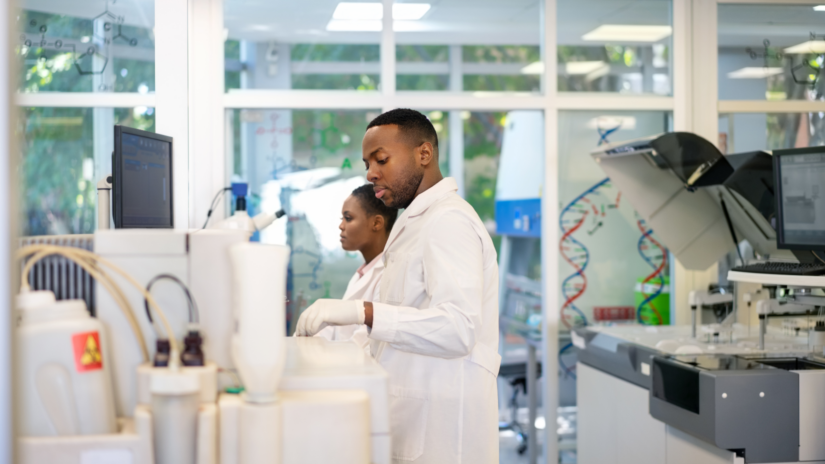
Date
29 March 2023
Time
14:00-15:00 CET / SAST
Hosts
H3D Foundation and IFPMA
Location
Online
Attendance
This event has now passed. To browse our upcoming events click here.
COVID-19 alerted the world to the fact that, if more equitable health access is to be achieved, there must also be more mechanisms to strengthen local capacities in innovation and manufacturing, especially on the African continent.
As a result, new partnerships have emerged, illustrating joined forces behind boosting African R&D and manufacturing – as well as the biopharmaceutical workforce – over the next decades.
H3D, the Holistic Drug Discovery and Development Centre based at the University of Cape Town in South Africa, has long been a leader in building and leveraging African innovation and world-class talent. Through a series of project-based activities, they are fostering health innovation and developing an early- and mid-career community of scientists who are making a difference for healthcare in Africa today. Building on H3D’s success, the H3D Foundation was launched to scale South African programs and promote Africa’s existing innovation ecosystem.
In this webinar, IFPMA and H3D Foundation invite people to join multidisciplinary experts for a discussion about health innovation in Africa, and the projects, partners, and people that are already strengthening the continent’s capacity and paving the way for more equitable access to inclusive healthcare.
Webinar
Speakers
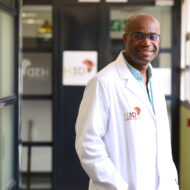
Kelly Chibale is a full Professor of Organic Chemistry at the University of Cape Town (UCT) where he holds the Neville Isdell Chair in African-centric Drug Discovery & Development. He is also a Full Member of the UCT Institute of Infectious Disease & Molecular Medicine, founding Director of the South African Medical Research Council (SAMRC) Drug Discovery & Development Research Unit at UCT, the Founder and Director of the UCT Drug Discovery and Development (H3D) Centre, a Johnson and Johnson (J&J) Satellite Centre for Global Health Discovery. He is also the Chairman and CEO of the H3D Foundation.
Kelly obtained his PhD in Synthetic Organic Chemistry from the University of Cambridge in the UK (1989-1992). This was followed by postdoctoral stints at the University of Liverpool in the UK (1992-94) and at the Scripps Research Institute in the USA (1994-96). He was a Sandler Sabbatical Fellow at the University of California San Francisco (2002), a US Fulbright Senior Research Scholar at the University of Pennsylvania School of Medicine (2008) and a Visiting Professor at Pfizer in the UK (2008).
Kelly’s many notable awards and honors include being named as one of the World’s 50 Greatest Leaders in 2018 by Fortune magazine and in 2022 as one of the 25 standout voices in African public health by Harvard University’s Public Health magazine. He is the Editor-In-Chief of ACS Medicinal Chemistry Letters.
His research interests are in infectious disease drug discovery and the development of preclinical discovery tools and models to contribute to improving treatment outcomes in people of African heritage.
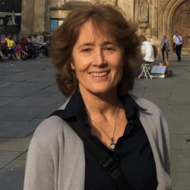
Kerry Cullinan is the Africa editor for the Geneva-based Health Policy Watch (https://healthpolicy-watch.news). Previously, she worked as health editor for openDemocracy (opendemocracy.net).
She ran Africa’s first independent non-profit health news agency, Health-e News, for 14 years. During this time, they managed a multi-million dollar communications campaign on the dangers of sugary drinks, developed an app to assist rape survivors, and produced thousands of stories for mainstream TV, radio, print, and online outlets in South Africa.
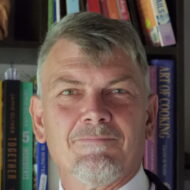
Ben Durham is Chief Director: Bio-innovation at the National Department of Science and Innovation in South Africa. His responsibilities include the implementation of the South African Bio-economy Strategy, launched in January 2014, and he oversees innovation instruments and initiatives in Agriculture, Health, Industry & Environment, and Indigenous Knowledge. The ultimate purpose is to ensure strategic socio-economic and environmental benefits from bio-innovation.

Helen Fletcher is Innovation Lead for Emerging Pathogens and the Leader of Johnson & Johnson Centers for Global Health Discovery (CGHD), a network of J&J partnered labs being established in major public health institutions across the world.
In her role, Helen works in collaboration with discovery scientists, business development, and Johnson & Johnson Innovation colleagues forging external partnerships to build the discovery and R&D portfolio within J&J Global Public Health.
Before joining Johnson & Johnson, Helen was a Professor of Immunology and Associate Dean of the Faculty of Infectious and Tropical Diseases at the London School of Hygiene & Tropical Medicine (LSHTM). Prior to this, Helen was on secondment to UK Research and Innovation (UKRI) as Director of International Development, responsible for the strategy and delivery of the UKRI component of the Global Challenges Research Fund (GCRF) and the Newton Fund. These research funds formed part of the UK governments commitment to the UN Sustainable Development Goals. Helen has a B.SC. and Ph.D. in Microbiology from the University of Leeds and more than 20 years’ experience in tuberculosis (TB) vaccine development at University College London, University of Oxford, and LSHTM. She is a Trustee of the Jenner Vaccine Foundation and has published more than 100 articles and book chapters.
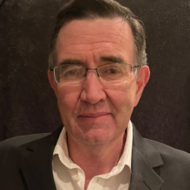
Hannes Malan is the Managing Director of Chemical Process Technologies (CPT). He has a PhD in organic chemistry and Masters in Business Leadership. Hannes worked for 17 years in SA chemical industry before joining CPT in 2007 as co-owner. Since then, he has overseen the five-fold growth of the company and establishment of CPT Pharma in 2014.
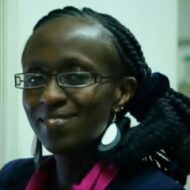
Elizabeth V. M. Kigondu has a training background in chemistry. She pursued her PhD studies at the Chemistry Department, University of Cape Town, South Africa, under the supervision of Prof. Kelly Chibale (H3D Drug Discovery and Development Center) and Prof. Digby [Molecular Mycobacteriology Research Unit (MMRU), Institute of Infectious Disease and Molecular Medicine (IDM)]. Her project was titled “Repurposing Chlorpromazine and its Metabolites for Antituberculosis Drug Discovery.” She was able to demonstrate that efflux activity caused by efflux pumps located on the cell membrane of the Mycobacterium tuberculosis (Mtb) cells, that extrudes anti-tuberculosis drugs, can be blocked by chlorpromazine and its metabolites leading to a significant synergistic effect. Elizabeth also has MSc (Medicinal Chemistry) and BSc (Chemistry) degrees from Jomo Kenyatta University of Agriculture & Technology, Kenya.
Elizabeth’s research interests are generally in drug discovery and development from natural products. Her current projects are focused on exploring compounds that can reverse the development of drug resistance that arises from efflux activity in Mtb. To support this work, she recently received funding from the Grand Challenges-Africa Drug Discovery Seed Grant (Round 2) through, the Science for Africa Foundation (SAF) and from Medical Research Foundation (MRF), Dorothy Temple Cross Tuberculosis International Collaboration Grant (as a co-principal investigator).
During her final year of her PhD studies, she was awarded the Faculty for the Future Fellowship by the Schlumberger Foundation and the same year she participated in the Next Generation of Scientist Internship Program (3 months), at the Novartis AG Pharmaceutical Company, Drug Metabolism and Pharmacokinetic Department, Basel, Switzerland. Between 2021 and 2022, she was also awarded a Scientific Discovery Fellowship by the Janssen Pharmaceutical N.V, in partnership with the Johnson & Johnson Foundation. During this award period, she visited the Janssen labs in Beerse, Belgium for 3 months (June and August 2022). Elizabeth has published 21 papers and has presented several conference papers.
In her past and present research work, Elizabeth has collaborated with various scientists (within and without KEMRI). She has been mentoring several students undertaking their undergraduate and postgraduate courses locally and internationally. Elizabeth is a member of the KEMRI’s Publication Committee and the Institutional Review Board known as Scientific and Ethical Review Unit (SERU) where her role is to review manuscripts and research proposals. In addition, she is a member of the Christian and Scientific Association of Kenya (CSAK), Schlumberger Foundation – Faculty for the Future (Alumni Fellow), Natural Product of Eastern and Central Africa (NAPRECA-Kenya), and the Organization for Women in Science for the Developing World (OWSD).
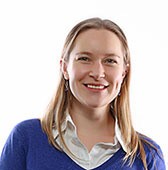
Dr Susan Winks (PhD, MBA) is the Head of Research Operations and Business Development at the Holistic Drug Discovery and Development Centre (H3D) at the University of Cape Town. She manages the team of professional staff that support the interdisciplinary drug discovery work at the centre. Her role includes ensuring operational continuity and sustainable growth by long-term strategic planning, management of partnerships and stakeholders, fundraising and renewal of funding agreements, management of internal governance structures, and portfolio oversight. Since joining H3D in 2013, Dr Winks has worked closely with the Director to raise over R800 million in research funding, grown the centre from 12 to 76 staff members, and systematically introduced systems (governance, project management, HR, data management, mentorship etc.) and new capabilities to support sustainable growth. Her passion is around strategic planning and optimizing work environments to maximize the positive impact of the work to solve global problems.
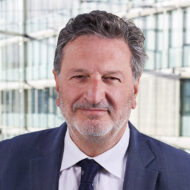
See speaker bio here


